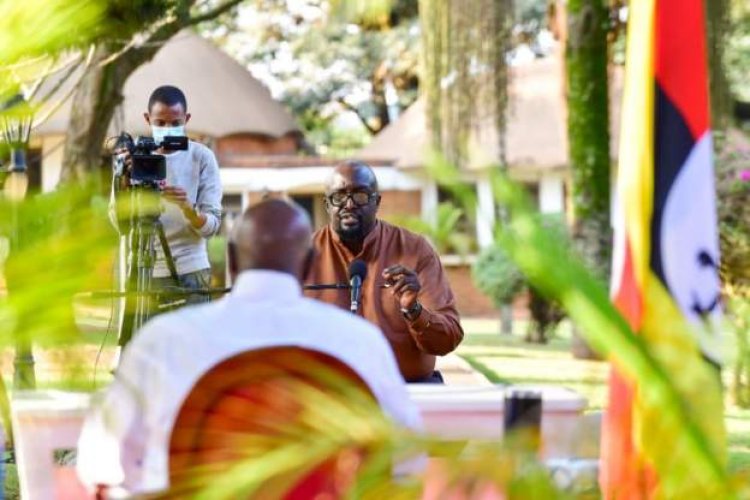Russia and China approach Africa as friends - Museveni
On the topic of rising fuel prices, he says the country should be transitioning to electric cars and trains. It would reduce the price of goods for everyone, he believes.

“What have you been eating Mr. Kasujja?”
These are the first words I hear from President Yoweri Museveni, grinning as he walks toward me across the garden of the State House in Kampala.
I can’t say I’m surprised. The last time I met him he exclaimed “who’s this monster?”
The time before that he asked me how many people I’d eaten for breakfast.
You get used to these comments when you’re six foot eight.
It’s a brief moment of levity. Once he sits down – 30 feet across from me, still cautious about Covid – Mr. Museveni is all business.
Speaking to him for the BBC’s Africa Daily podcast, I’m reminded that Uganda’s president, often thought of as a military or strong man, is a scholar at heart.
When I ask him whether Uganda is getting closer to Russia and China, he tells me that these countries weren’t colonizers or slave traders in times gone by. He says they have always approached the continent as friends.
When I question the role of the opposition in Uganda, he takes me back to 1789 – the French revolution and the evolution of democracy in Europe. Uganda is on a different path, he says.
When he explains his position on the war in Ukraine, he compares Nato’s presence in eastern Europe to the Cuban missile crisis in 1962.
I wonder how these answers resonate with Uganda’s increasingly young population. More than 77% of people here are under the age of 30.
From the conversations I’ve had over the past week, they’re focused on their immediate needs – whether they can afford the rising cost of baby formula, the expenses from medical bills, and whether to pursue a career here or travel overseas.
The president doesn’t see this distinction. He tells me: “What you call history Mr. Kasujja, I call current affairs.”
But looking to the future, it seems he is willing to engage in the idea of change.
I put to him a question raised during a discussion I had with young professionals in the capital – if they are being asked to tighten their belts, why can’t politicians curb their spending on big cars, drivers, and executive travel?
Mr. Museveni says it’s a fair point.
When I ask why he hasn’t released a directive to that effect, he says it would be a good idea.
On the topic of rising fuel prices, he says the country should be transitioning to electric cars and trains. It would reduce the price of goods for everyone, he believes.
But what about his future?
I share with him an observation that many of Uganda’s prominent leaders - the Prime Minister, Vice-President, and Speaker of Parliament – are from a new generation in their 40s and early 50s.
I ask whether we are witnessing the beginning of a transition of power. “Yes,” he tells me, “people are coming up.”
He denies he is grooming his son – Lieutenant General Muhoozi Kainerugaba, commander of Uganda’s land forces – to take over the presidency.
But he insists that the next generation of leaders should come from his party, the National Resistance Movement.
So, after 35 years leading the country, is he ready to spend more time on the ranch with his beloved cows – retire perhaps?
“It’s very comfortable there. I could go any time” he says “I don’t need a job”.
But I have to remind him…he told me the same thing when we spoke in 2013.
Source: BBC

 Boakyewaa Lawrencia
Boakyewaa Lawrencia 


































